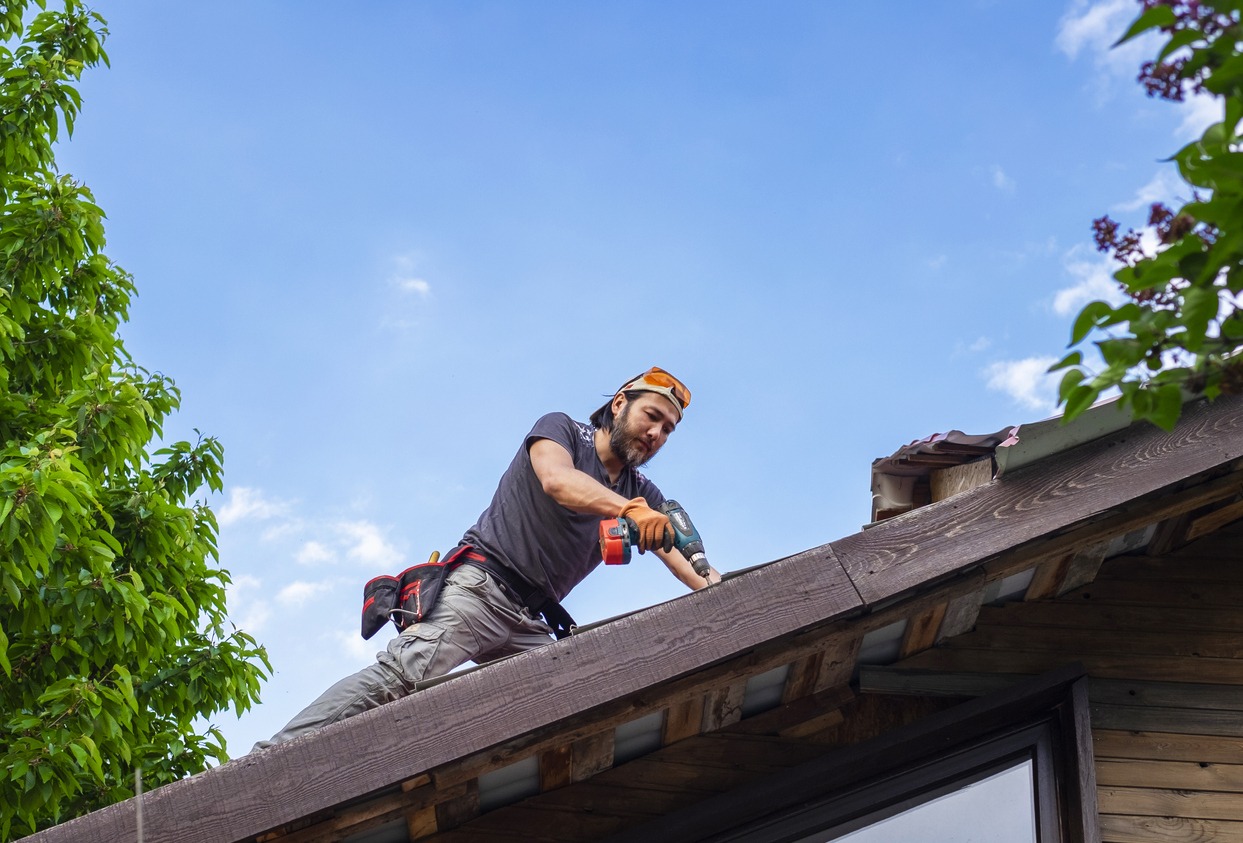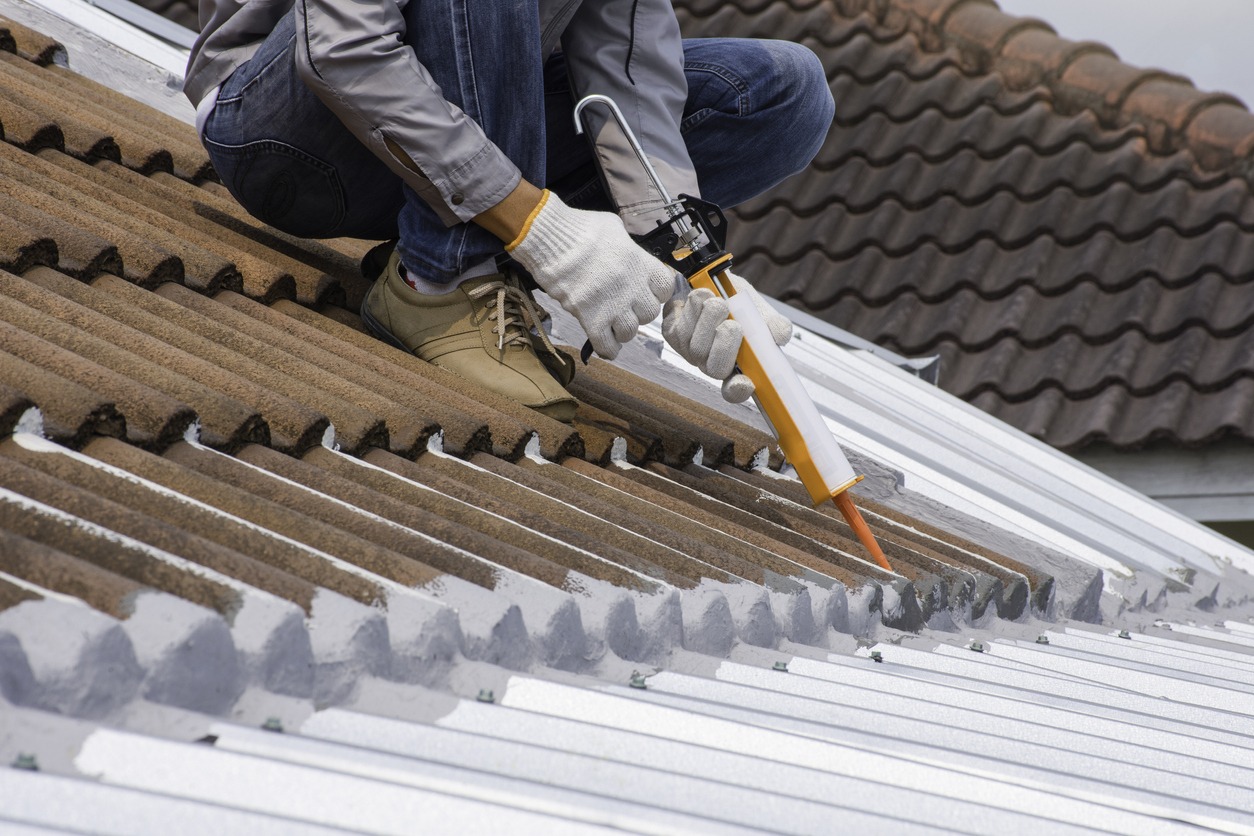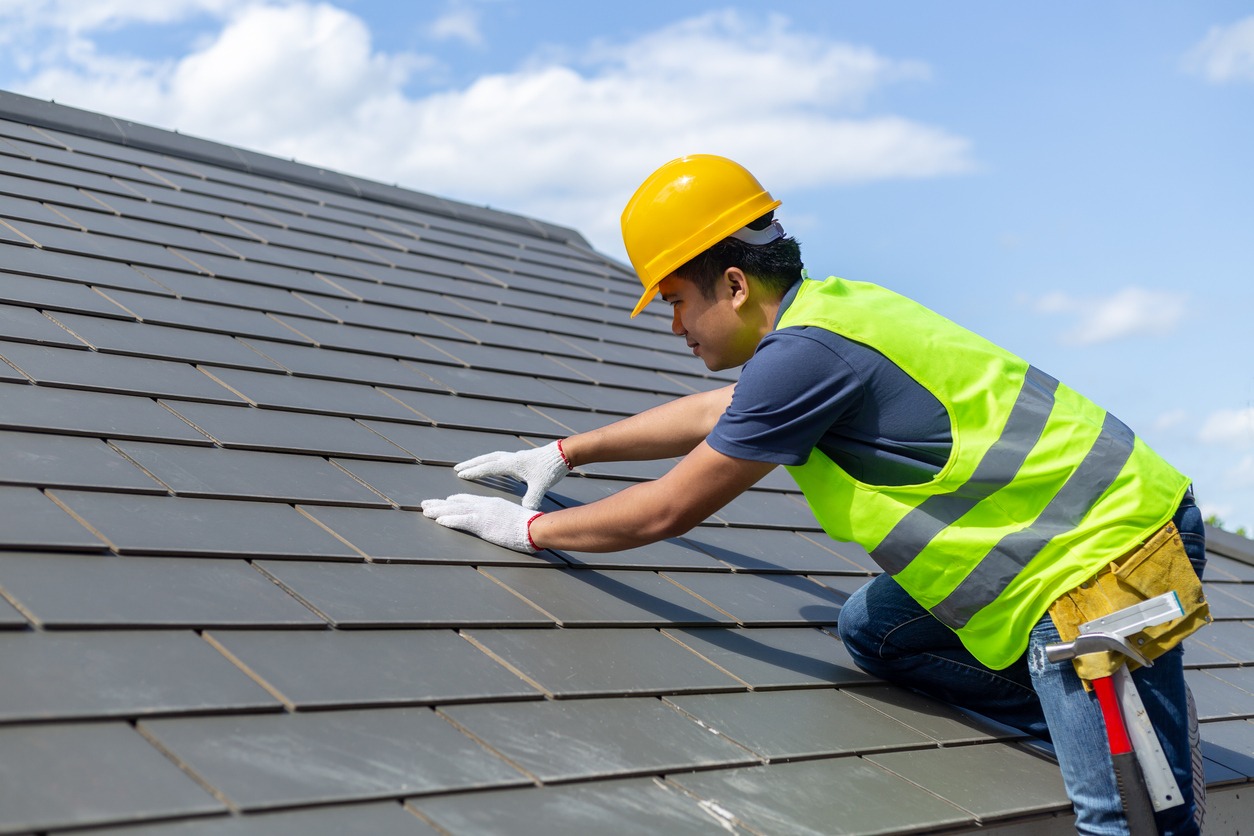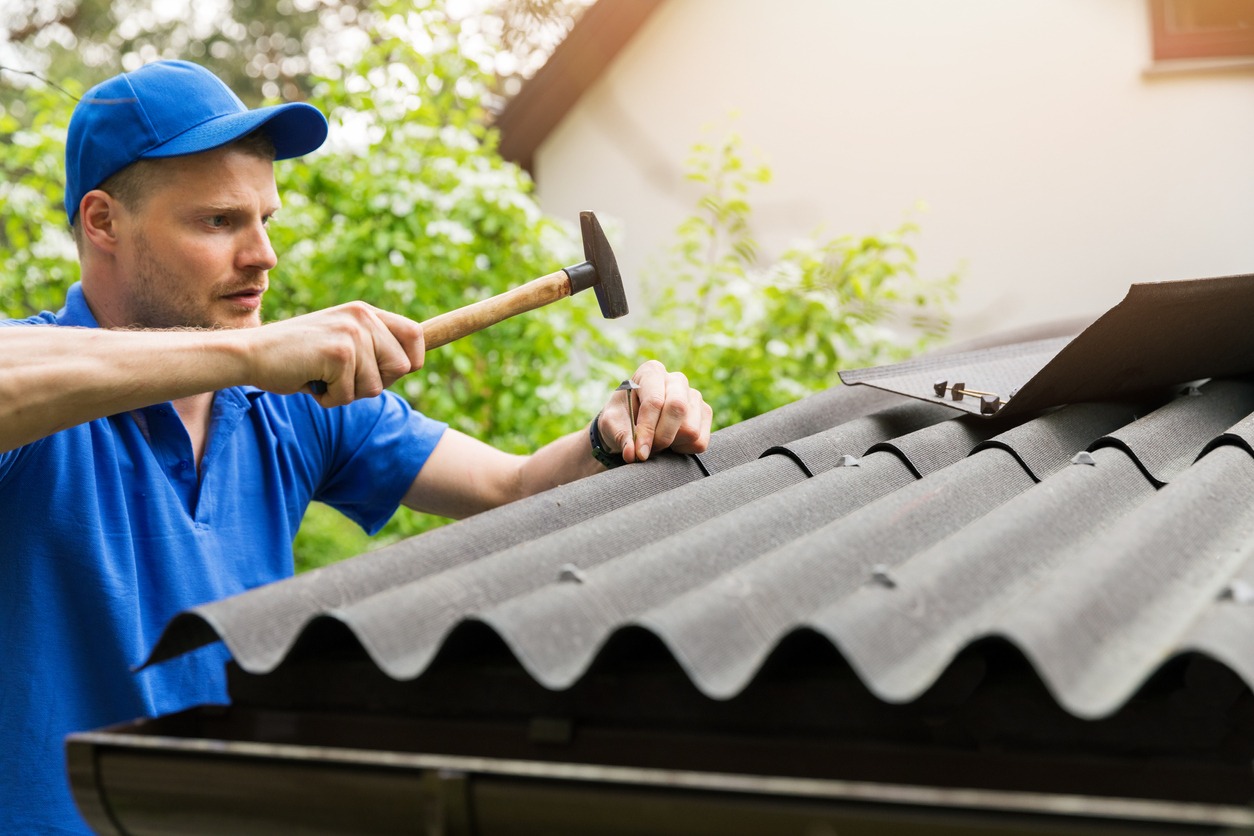Roof repairs come as an inevitable part of home ownership or building maintenance. When faced with a damaged roof, you have two ways to go about it. You can roll up your sleeves and take on the task yourself, or you can hire a professional roofing contractor. But which option is better? While both approaches have their own advantages and drawbacks, the answer depends on various factors. Let’s delve into the comparison between professional roof replacement and DIY to assist you in determining the best choice for your specific needs.
Throughout this article, we’ll explore the pros and cons of DIY roof repairs and replacements, the benefits associated with hiring a professional roofer, and other critical aspects to factor in when deciding between DIY and professional roofing services.
When to Attempt DIY Roof Repair
Sometimes, your roof might need fixing when professional help isn’t available, like during bad weather or after hours. In these situations, trying a DIY repair can be your best option. It can also save you money if you’re on a tight budget.
Simple repairs like replacing a few broken or missing shingles are fine to DIY. Homeowners often manage this kind of fix with basic DIY skills and tools.
But for more complex issues like finding and fixing leaks or dealing with structural problems such as sagging roofs, it’s best to involve a professional roofer.
When deciding how to proceed, think about your skills, what you know, and how comfortable you are working at heights. If the repair needs special tools or advanced methods or raises safety concerns, it’s a good idea to consult a qualified roofing expert. They have the know-how, abilities, and experience to handle roof repair challenges successfully.
Pros and Cons of DIY Roof Repairs
When thinking about tackling your own roofing repairs, here’s a rundown of the advantages and disadvantages to consider.
Pros of DIY Roofing
There are many ways DIY repair can be advantageous, such as:
- Cost savings – Opting to repair or replace your roof by yourself has the potential to put some money back in your pocket. You will definitely save if the task is simple, like sealing gaps or replacing a few shingles – these are easy to DIY. By handling the project independently, you can avoid labor fees. Moreover, if you manage to find materials at a lower cost compared to what a pro roofer might charge, your savings could increase. Remember, a DIY roof job might turn out pricier if it’s not done correctly. Researching and ensuring you’re up for the task before diving into such a substantial project is essential.
- Urgent action – When repairs can’t wait, like if you’re dealing with leaks, drafts, or warping, waiting for a contractor might not be feasible. Some companies might even charge extra for urgent service. DIY lets you tackle the issue promptly, containing the problem and safeguarding your home.
- Flexible scheduling – Another advantage of DIY roof repairs is the flexibility in scheduling. Instead of being tied to a contractor’s availability, you can work on your project when it suits you.
- Control over the process – DIY roof repairs give you total control over the entire process. When you hire a pro, they make decisions about materials, timelines, and other key factors. With DIY, you manage every detail, ensuring your roof is fixed according to your preferences.
- Learning new skills – Taking on DIY roof repairs is a great opportunity to learn and understand more about your home. You can gain insights into roofing materials, installation techniques, and the best ways to maintain your roof. These skills not only help with future repairs but also contribute to your personal and professional growth.
- Feeling accomplished – Finishing a DIY roofing repair brings a sense of accomplishment and pride. There’s something fulfilling about tackling a challenging task and seeing the results of your hard work. This is especially true when you resolve a problem that has been causing you stress or inconvenience.
Cons of DIY Roofing
Despite the advantages we’ve discussed earlier, it’s crucial to recognize that DIY roof repair isn’t the right choice for everyone. If you’re uncertain about your ability to complete the project safely, it’s best to play it safe and hire a professional roofer. Now, let’s delve into some downsides that come with opting for a DIY roof replacement.
- Safety concerns – The most notable drawback of DIY roofing projects is the concern for safety. Working on a roof involves heights, and a fall from there can have serious consequences. While you might feel comfortable with heights, navigating a roof, especially one with a steep incline or multiple levels, can be challenging. Plus, the physical demands of bending, climbing, and lifting are continuous, often in weather conditions that are hot or windy.
- Limitations in identifying issues and prone to errors – DIY roof repairs have limitations. It’s easier to accurately diagnose the root causes of problems if you possess roofing knowledge and experience. Small issues might seem manageable but could indicate more significant underlying damage. Professional roofers boast years of training and practice, understanding the ins and outs of roof repair. Without this level of expertise, attempting repairs can lead to errors that could end up being costly to rectify.
- Risk and inadequate repairs – Furthermore, working on the roof can be risky, especially if you’re not accustomed to heights and lack the proper safety equipment. Improper repairs can worsen the problem, leading to more damage that eventually costs more to fix.
- Risk of further damage – When a roof is damaged, prompt repairs are crucial to prevent escalating issues. However, attempting a DIY roof replacement carries risks. One major concern is the potential to exacerbate the damage if you don’t correctly install the new materials. This mishap could lead to leaks and other costly problems that would require additional or bigger repairs.
- Needs time and effort – Lastly, DIY roof repairs demand a considerable investment of time and effort. Depending on the size and complexity of the repair, you could find yourself devoting hours, or even days, to working on your roof. This can become particularly challenging if you have other responsibilities like work or family commitments.
- Time-consuming process –Anyone who has attempted a DIY roof replacement knows it’s a process that eats up time. First, you have to remove the old roofing material, which can be quite a task, especially if the roof is large or steep. Then, the decking needs inspecting and fixing or replacing if damaged. Installing new felt paper or ice and water shield comes next before applying new shingles. Finally, the flashing around vents and chimneys has to be checked and replaced as needed. For most homeowners, leaving the roof replacement to the professionals is a smart choice. It not only saves time but ensures the job is done correctly.
- Risk of injury – Roof replacement isn’t just physically demanding; it requires specific skills and know-how. A single misstep could lead to a fall or serious injury. This is why experts usually advise leaving roof replacement to professionals. They possess the experience and expertise to complete the job safely, along with proper insurance coverage in case something goes awry. While trying to save a few bucks by tackling your own roof replacement might be tempting, it’s simply not worth the potential risk.
Advantages of Professional Roofing
While the idea of tackling repairs on your own might be tempting, there’s a range of benefits to consider when opting for a professional roof repair contractor. Here are several notable advantages:
- Access to quality materials, resources, and technology – Teaming up with professional roofing contractors grants clients access to top-notch materials, advanced technology, and ample resources. While a DIY approach might involve making do with what’s on hand in your garage, professionals come equipped with the specialized gear for optimal efficiency, allowing for a perfect roof job.
- Experience and expertise – Professional roof repair specialists are highly knowledgeable when it comes to fixing various roofing problems. They’ve undergone extensive training in effective problem-solving techniques. With their experience, you can trust that repairs will be carried out correctly, minimizing the risk of further damage.
- Right the first time – The most significant perk of opting for professional roof replacement is the assurance that the job will be completed correctly from the get-go. Roofing contractors have the experience and expertise to execute the task swiftly and accurately.
- Warranty – One of the primary benefits of enlisting a professional roofing contractor for your roof replacement project is the typical inclusion of a warranty on their work. This means that if any issues arise within a specific time frame after the work’s completion, the contractor will rectify it at no extra cost to you. This provides peace of mind, safeguarding your investment in case anything goes awry. Additionally, attempting DIY roof replacement might void warranties from the manufacturer. Professionals meticulously follow the manufacturer’s instructions during installation, ensuring the warranty remains valid in case of material-related problems.
- Safety and certification: Rely on experts like roofing companies to steer clear of danger during roof repairs. What might appear as a simple DIY fix can carry hidden risks such as falls, mold exposure, and more. In some cases, DIY fixes can even worsen problems, potentially leading to roof collapses down the road.
- Convenient – Roof repairs can be time-consuming, especially for those without experience. Hiring a professional can save you both time and effort. Professionals are adept at swiftly identifying issues, planning repairs efficiently, and completing tasks on schedule.
- Time-saving – As previously mentioned, one of the most significant benefits of professional roof replacement is the considerable time saved. You won’t have to worry about taking time off work to repair your roof if you have a busy schedule. A professional roofing company can efficiently repair your new roof, allowing you to quickly return to your regular routine.
Can You Replace Your Roof Yourself?
Taking on a roof replacement is a big, multifaceted project. Typically, it involves removing existing shingles, addressing underlying shingles and structural issues, and then installing new shingles. However, there are two crucial factors to consider when deciding whether to tackle this project yourself.
Roof Size and Slope
The size of your roof plays a role in the amount of materials you’ll need and the time required for transportation and installation. Another consideration is the angle or slope of your roof. Roofs with lower slopes are easier for shingle installation due to their flatter angles. On the other hand, steeper roofs take more time and effort. If your roof features additional elements like chimneys, dormers, or skylights, the task becomes more complex.
Roofing Material
There’s a range of roofing materials available, including asphalt, metal, wood, clay, and slate. Some are more DIY-friendly than others. Lightweight materials such as asphalt or wood shakes are simpler to install compared to heavier or more intricate options like metal or slate.
For instance, asphalt shingles, while not the flashiest, are cost-effective and surprisingly durable, lasting around 30 years on average. If you opt for asphalt, pay attention to the hail rating, as not all asphalt shingles are of the same quality. Look for ones with a UL 2218 Class 3 or 4 rating.
On the other hand, metal roofs offer remarkable durability, lasting up to 50 years. They can withstand hurricanes and hail, providing your home protection during severe weather. However, with metal roofs, replacing just one shingle isn’t an option. Instead, you need to replace an entire panel due to its interconnected design.
Additional Considerations for DIY Roofing
You might need a permit before starting the work. Check with your local authorities to determine if one is required and if it’s granted to amateurs. If you’re part of a homeowners’ association (HOA), make sure to secure their approval as well. They might insist on professional help.
Furthermore, review your homeowner’s insurance policy. Most policies don’t cover roof repairs and replacements due to normal aging, but many do cover damage caused by common perils like hail, fire, or wind. However, they may mandate that only bonded and licensed professionals carry out the work. If your efforts lead to further damage or injuries, your insurance might not cover those costs.
Tips for Successful DIY Roofing Fixes
If you’re opting for a DIY roofing repair, here are some straightforward tips to ensure your project goes smoothly:
Prioritize safety gear – First, equip yourself with proper safety gear. This includes a harness, a sturdy ladder, and slip-resistant shoes. Consider using a safety net or having a partner assist you during the repair.
Select appropriate materials – When shopping for materials, choose high-quality products designed for your specific roof type. Opting for suitable materials ensures your repair will withstand the test of time and yield optimal results.
Do your research – Before you dive into the repair, invest some time in research. Watch tutorials, view videos, and read articles about DIY roof repairs. This understanding will guide you through the process, helping you complete the task accurately and without causing further damage.
Safety and effectiveness in DIY roof repair – If you decide to embark on a DIY roof repair journey, it’s essential to adhere to proper safety measures. Wear appropriate safety equipment such as a hard hat, gloves, and traction-enhanced boots. Utilize a toolkit that includes essentials like a ladder, roofing cement, caulk, and extra roofing material to get the job done.
Consider weather conditions – Choose a period with dry weather and no rain or snow in the forecast. Start with simple fixes, such as addressing a broken shingle or minor leaks. Avoid tackling complex projects unless you possess the appropriate training and experience.
Balancing DIY with professional help – While DIY roof repairs might seem budget-friendly, it’s essential to weigh the pros and cons. For substantial roofing tasks and significant damage, enlisting a professional roofing company is often the wiser choice.
Prioritize safety and expertise – When venturing into DIY roof repairs, make safety a priority. If you’re uncertain about your roof’s condition or the complexity of the repairs exceeds your expertise, consult a professional roofing contractor. By conducting thorough research and assessing your options, you can make an educated decision that safeguards your home and long-term investment.
Which Roof Repairs Can You Handle on Your Own?
To be honest, the prospect of replacing an entire roof can be quite overwhelming for most DIY enthusiasts. However, when it comes to repairs, the story is different. Here are some straightforward repairs that you can confidently tackle with minimal investment:
Replace damaged shingles
If a storm, winter weather, or the passage of time has left a few shingles cracked or rotted, you can likely handle the repair yourself. The process involves removing nails and breaking any seals if necessary. Afterward, you can replace the damaged shingle with a new one.
Address flashing issues
For roofs with features like chimneys or dormers, there’s usually flashing – a thin metal material that diverts water away from potential entry points in your home. While inspecting your shingles, take a moment to check the flashing for leaks. If you spot any leaks, simply use a caulk gun filled with a roofing cement to reseal the joints and prevent further water infiltration.
Ways to Cut Costs on Roof Repairs and Replacements
If you’re concerned about the expenses of roofing projects but uncertain about taking on the task alone, here are some alternative approaches to help manage the project’s budget.
Source your materials
Typically, professional roofers provide the materials as part of their service (which you pay for). However, if they don’t have the exact materials you desire on hand, you might save some money by personally ordering and obtaining the required supplies from a supplier.
Collaborate
Consider a partial DIY approach where you hire a roofing professional but still contribute to some tasks. You can handle simpler tasks such as moving new shingles up to the roof, removing old ones, or clearing debris. Recruiting a friend or two to assist can further reduce labor costs.
Engage a general contractor
Instead of hiring a dedicated roofing company, you could enlist a general contractor to guide and oversee your work. They can offer valuable insights when selecting materials and quantities, provide assistance in case of challenges, and prevent costly errors. While a general contractor might increase the project price by 10 to 20 percent, this expense is still lower than having professional roofers handle the entire project, which significantly raises your DIY expenses.



